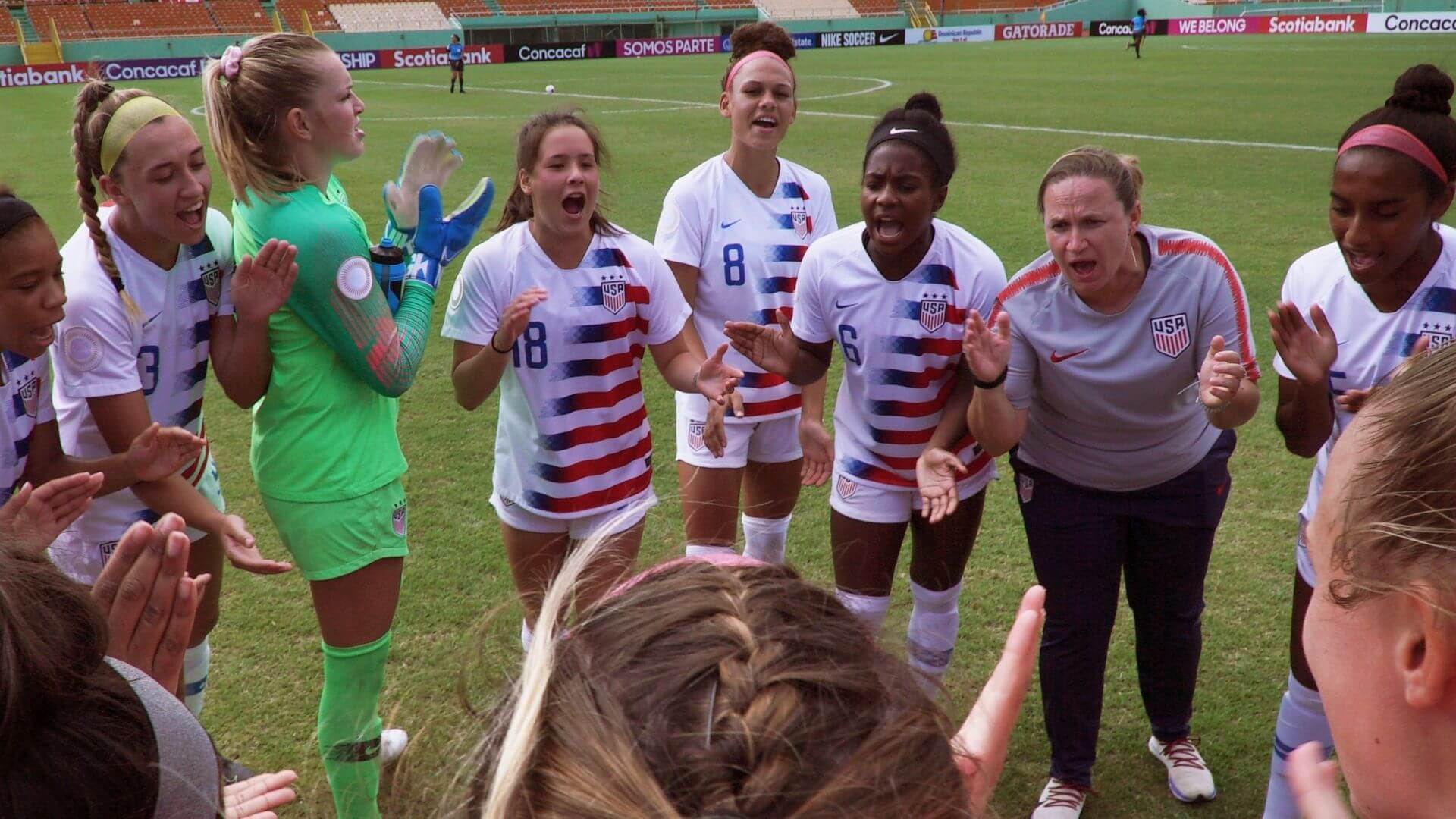How Q-Collar Became A TBI Game Changer for Soccer
The understanding of the risks and prevalence of head injuries in sports, girls soccer included, has increased significantly in recent years. Despite this, a closer evaluation of the numbers is eye-opening and indicates the need for a solution.
In 2020, the National Institute of Neurological Disorders and Stroke purported that anywhere from 1.6 million to 3.8 million sports- and recreation-related traumatic brain injuries (TBI) are estimated to occur in the United States annually. TBI is caused by a forceful bump, blow, or jolt to the head or body.
According to the Centers for Disease Control and Prevention, about 15% of all U.S. high-school students in 2019 self-reported one or more sports or recreation-related concussions within the preceding 12 months.
A study, published in the journal, Pediatrics, found that girls who play high school soccer are at nearly the same risk for traumatic brain injuries as boys who play high school football players.
Data from the National High School Sports-Related Injury Surveillance was examined, and 9,542 concussions in high school sports were studied. Boys playing football suffered the most concussions, at 10.2 concussions per every 10,000 practices and games. Girls’ soccer was a close second at a rate of 8.4 per 10,000. Boys’ soccer, by contrast, had a much lower rate of 3.5 concussions per 10,000 games and practices.
In response to the increasing prevalence of TBI in sports, a couple of medical experts and Q30 Innovations set out to find a way to reduce TBI among athletes. Q30 dedicated tremendous time and financial resources to the issue, resulting in the Q-Collar.
The Q-Collar is the only FDA-Cleared medical device that helps protect athletes’ brains during head impacts. “FDA-Cleared” reflects the FDA’s highest level of review and authorization for a non-invasive, low-risk device like the Q-Collar. The Q-Collar is a C-shaped collar worn around the neck during sports activities that may aid in protecting the brain from the effects of head impacts.
FDA-Clearance vs. FDA-Approval
The FDA groups devices into three classes based on their potential risks to the public: Class-1, Class-2, and Class-3. Class-1 medical devices carry the lowest risk to consumers and may be marketed as “FDA-listed” or “FDA-registered.” Examples of Class I devices include bandages and exam gloves.
Class-2 medical devices, such as the Q-Collar, must be safe and effective for their intended use. Class-2 medical devices are marketed as “FDA-cleared” devices, such as the Q-Collar, blood pressure cuffs, and infusion pumps.
Class-3 or “FDA-approved” medical devices carry the highest risk to consumers. These devices may be crucial in supporting life or helping prevent significant health harm; such devices include pacemakers and deep brain stimulators.
The Q-Collar FDA-Clearance Timeline
FDA-Clearance is a rigorous process, as it should be. Below is the timeline detailing the advanced steps required to develop the innovative and effective Q-Collar.
- Beginning in 2011, Q30 commenced laboratory studies to study the TBI issue.
- In 2014, Q30 conducted human performance safety studies.
- Between 2014-2017, Q30 conducted pilot clinical trials or small-scale studies in preparation for more extensive Q-Collar clinical investigations.
- From 2018 to 2019, pivotal clinical trials began seeking to demonstrate the safety and efficacy of the Q-Collar to obtain FDA-Clearance.
-
-
- One of these pivotal trials focused solely on girls soccer players, a rarity in the sports science space, using MRI scans at the beginning and end of the season to evaluate brain tissue. The trial found the group wearing the collar had a significantly higher likelihood of not sustaining changes over the course of the season, aligning with previous literature.
-
-
- In 2020, Q30 started its FDA application for clearance by filing a “de novo” application in March
- On February 26, 2021, the FDA cleared the Q-Collar for sale in the United States to athletes 13 years of age and older.
Q30 sponsored more than 20 independent laboratory studies and clinical trials. In addition, Q30 conducted a series of human clinical trials involving male hockey, football, and female soccer players, to demonstrate that the Q-Collar is safe and effective at helping reduce the risk and severity of traumatic brain injury in athletes.
Christopher M. Loftus, M.D., Director of the Office of Neurological and Physical Medicine Devices in the FDA’s Center for Devices and Radiological Health, commented:
“Today’s action provides an additional piece of protective equipment athletes can wear when playing sports to help protect their brains from repetitive head impacts while still wearing the personal protective equipment associated with the sport.”
As a result of the arduous research, trials, product development, and FDA-Clearance, the Q-Collar will give soccer players an added level of protection, providing a sense of reassurance and freedom to perform at their peak on the pitch.
_
GIRLS SOCCER NETWORK: YOUR SOURCE FOR GIRLS SOCCER NEWS













